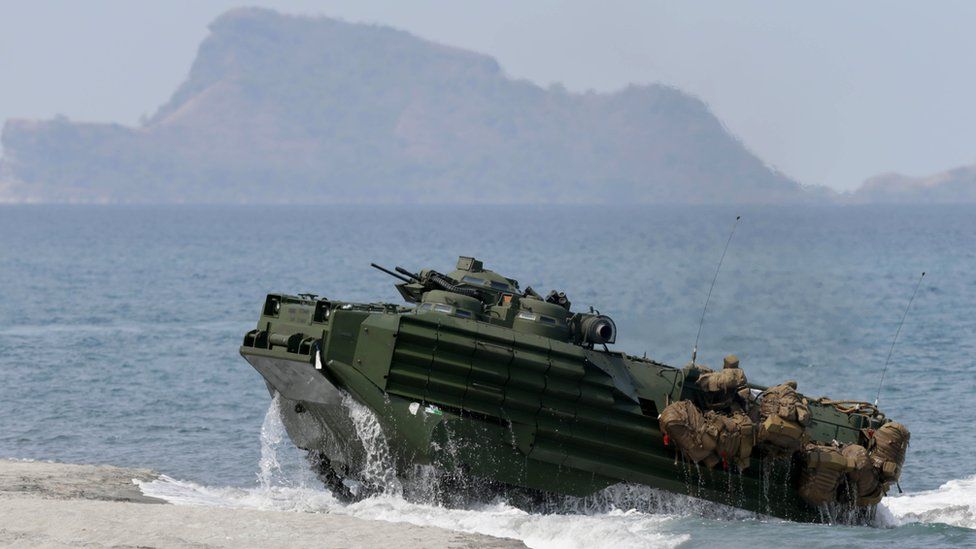Google Maps alters disputed South China Sea shoal name
-
Published

Google has updated its map of a disputed shoal in the South China Sea, removing a Chinese name for the reef after complaints from many Filipinos.
Google Maps now refers to the reef by its international name, Scarborough Shoal. Previously, the area was also named as part of the Zhongsha Islands.
Both China and the Philippines claim the shoal and its rich fishing grounds.
The Philippines has filed a case against China's claims at a UN tribunal - but Beijing has refused to take part.
Google Maps removed the Chinese name from the reef following an online petition that said the name gave credence to China's claims to the shoal, known as Huangyan Island by China and Panatag Shoal by the Philippines.
Scarborough Shoal was the scene of a tense stand-off between the Philippines and China in early 2012, when vessels from the two countries refused to leave the area for a number of weeks.
"We understand that geographic names can raise deep emotions which is why we worked quickly once this was brought to our attention," Google said in a statement emailed to the BBC.
Google's policy on disputed regions say that it considers "guidance from authoritative references, local laws and local market expectations", and strives to include "all points of view where there are conflicting claims".
China claims ownership of large parts of the South China Sea, including the Scarborough Shoal, which lie a little more than 100 miles (160km) from the Philippines and 500 miles from China, and the Spratly Islands.
Last week, a United Nations tribunal in the Hague began deliberations on whether it can hear a legal challenge over territorial claims in the South China Sea.
The Philippines filed the case at the Permanent Court of Arbitration in 2013, but China has refused to take part in the proceedings.
Even if the Philippines is successful in its attempts to pursue China at the UN tribunal, China would not be obliged to abide by the ruling.
Chinese foreign ministry spokeswoman Hua Chunying said on Tuesday that China "will never accept the unilateral attempts to turn to a third party to solve the disputes", and urged the Philippines to negotiate with China directly.
Aside from the Philippines, Brunei, Malaysia, Vietnam and Taiwan also have competing claims with China over various islands, reefs and shoals in the region.